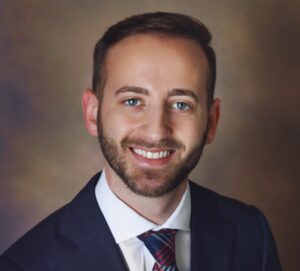
“Drier is Better: Fluid De-resuscitation in Critically Ill Adults”
Event Navigation
HealthTrust presents…“Drier is Better: Fluid De-resuscitation in Critically Ill Adults”

Please Note: Continuing education credit is only available to those attending the session live. CE credit is not available when accessing the program on demand.
Restrictive resuscitation measures have failed to show a survival benefit; therefore, researchers are investigating alternative options such as de-resuscitation. There is data available on the poor outcomes associated with fluid overload, which would warrant appropriate de-resuscitation strategies. This presentation will focus on the importance of fluid de-resuscitation in critically ill patients. The presenter will discuss background information on de-resuscitation, pathophysiology of shock, importance of adequate fluid balance, adverse effects of fluid overload, methods for fluid removal and monitoring techniques for fluid responsiveness. The “R.O.S.E.” conceptual model, summarizing a dynamic approach to fluid therapy to maximize benefit and minimize harm will also be reviewed. Studies evaluating strategies for monitoring fluid balance, patient outcomes pertaining to de-resuscitation, conservative versus liberal approaches, and the negative impact of volume overload will be discussed.
Learning Objectives for Pharmacists & Nurses | At the end of this session, participants should be able to:
- Recall the risks of volume overload in critically ill patients.
- Identify the principles of fluid de-resuscitation in critically ill patients.
- Recognize patients who may benefit from fluid de-resuscitation to improve outcomes.
Learning Objectives for Pharmacy Techs | At the end of this session, participants should be able to:
- Recall the risks of volume overload in critically ill patients.
- Identify medications commonly used for fluid de-resuscitation in critically ill patients.
- Recognize storage and preparation considerations for medications used for fluid de-resuscitation in critically ill patients.
Presenter:
Joel Kennedy, PharmD | PGY-1 Pharmacy Resident | Princeton Baptist Medical Center | Birmingham, AL
Target Audience: Pharmacists, Pharmacy Techs & Nurses
CE Credit: Approved for Pharmacists, Pharmacy Techs & Nurses
This program is approved for CPEs by the Accreditation Council for Pharmacy Education (ACPE). Attendees of this program may earn 1.0 CPE Contact Hours. Belmont University College of Pharmacy is accredited by the Accreditation Council for Pharmacy Education as a provider of continuing pharmacy education. The Universal Activity Numbers for this activity are 0863-9999-24-025-L05-P and 0863-9999-24-025-L05-T. The activity is approved for 1 hour (.1 CEUs) of continuing education credit for Nurses, Pharmacists & Pharmacy Techs who attend the webinar and complete the online evaluation. Pfiedler Education is a division of AORN, provider approved by the California Board of Registered Nursing, Provider Number CEP13019, for 1 contact hour. 1.0 contact hours approved for Nurses.
Note about CE credit: If you plan to obtain credit for a live session, stay until the end of the presentation to receive the verification code you will need to obtain the continuing education credit. CE credit is individual. No group credit is available. Each person must register for a webinar and attend the webinar in its entirety in order to receive an email after the event with instructions on how to apply for continuing education credit. Attendees should not share the code or forward the email to others who did not actually attend the program. If they are not able to be verified on our webinar provider reports and registration list they will not receive credit. If you are joining only by phone, you will not be eligible for credit. You must also log in and join the visual portion of the webinar to be part of our CE provider-required reporting.
Registration details coming soon!




